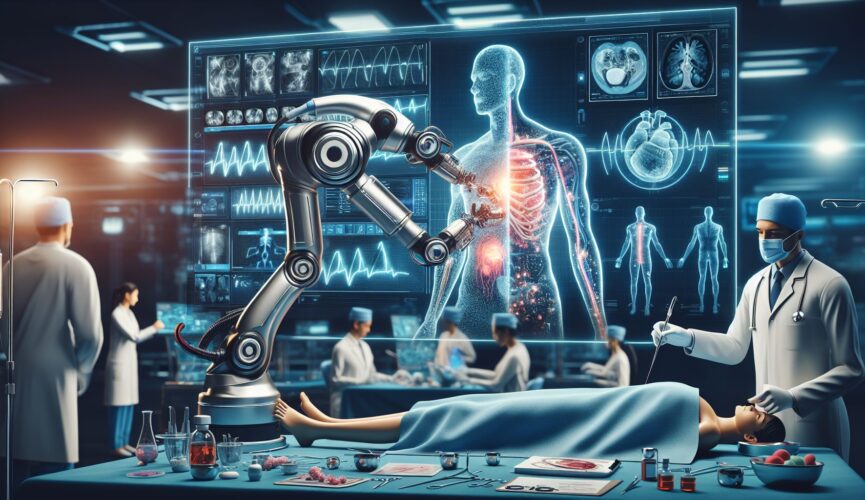In today’s fast-paced world, medical technologies continue to play a pivotal role in saving lives and improving health outcomes. With advancements in healthcare, diseases and their prevention have become more manageable. In this article, we will explore some groundbreaking medical technologies that have transformed the landscape of disease management and prevention.
Introduction: Advancing Healthcare through Innovation
Medical technologies have ushered in a new era of healthcare, enabling healthcare professionals to diagnose, treat, and prevent diseases more effectively. These cutting-edge technologies not only save lives but also enhance the quality of life for individuals worldwide. Let’s delve into some of the most notable medical technologies reshaping the future of medicine.
Wearable Devices: Your Health at Your Fingertips
Wearable devices have become increasingly popular in recent years, transcending their initial purpose as fitness trackers. Today, these versatile tools allow individuals to monitor vital health information, providing early detection and intervention opportunities. From smartwatches to fitness bands, these devices can measure heart rate, track physical activity, and even offer electrocardiogram (ECG) readings.
By monitoring health data, wearable devices empower individuals to take proactive measures in maintaining their well-being. Potential health risks such as irregular heart rhythms can be identified early, enabling timely medical intervention. These devices have the potential to save countless lives by preventing cardiac events and other critical health issues.
Telemedicine: Bridging Gaps in Healthcare Access
Telemedicine has emerged as a game-changer in healthcare, particularly in remote or underserved areas. This technology enables patients to consult with healthcare providers remotely through video calls, ensuring access to medical expertise regardless of location. Telemedicine allows for timely diagnosis, prescription renewals, and specialist referrals, reducing the burden on overburdened healthcare systems.
Moreover, telemedicine offers a lifeline to individuals with limited mobility or those living in rural areas lacking local medical facilities. This technology has proven instrumental in triaging emergency situations, leading to better outcomes and potentially saving lives by facilitating prompt medical attention. Telemedicine exemplifies how medical technologies transcend geographical barriers, giving everyone access to crucial healthcare services.
Artificial Intelligence: Revolutionizing Diagnosis and Treatment
At the forefront of medical technology advancement, artificial intelligence (AI) has demonstrated immense potential in revolutionizing disease diagnosis and treatment. By analyzing vast amounts of patient data and patterns, AI algorithms help healthcare professionals identify ailments faster and with higher accuracy. This transformative technology equips medical experts with valuable tools for early detection and individualized treatment plans.
Furthermore, AI-assisted robotic surgeries have boosted precision, reducing the risk of complications during complex procedures. Surgeons can now utilize robotic systems to perform intricate surgeries, enhancing both patient safety and surgical outcomes. This groundbreaking fusion of AI and robotics has paved the way for less invasive surgeries and faster patient recovery times.
Disease Tracking: Early Warnings for Public Health
Medical technologies have also contributed significantly to disease tracking and prevention at a population level. Sophisticated systems that leverage artificial intelligence and big data analytics can monitor trends, detect disease outbreaks, and track the spread of infectious diseases. By identifying hotspots and predicting potential outbreaks, healthcare authorities can take proactive measures to contain the spread, saving countless lives.
For instance, during the COVID-19 pandemic, contact tracing applications proved instrumental in identifying and isolating potential carriers. This technology enabled health authorities to implement targeted interventions and safeguard communities from widespread infections. Disease tracking technologies empower governments and healthcare professionals to respond swiftly and effectively, mitigating the impact of epidemics.
Conclusion: Empowering Healthcare through Technology
Medical technologies continue to revolutionize healthcare, offering life-saving strategies and transforming disease prevention. From wearable devices that empower individuals to take control of their health to AI-assisted diagnostics and treatment, these advancements have paved the way for personalized, effective care. Moreover, telemedicine has bridged the gaps in healthcare access, ensuring that quality medical expertise is within reach for all.
As medical technologies continue to evolve, so does our ability to mitigate disease risks and save lives. By embracing and furthering these innovations, we can revolutionize healthcare, providing a brighter future for individuals worldwide. Let us harness the power of medical technologies to build a healthier, more resilient world.
